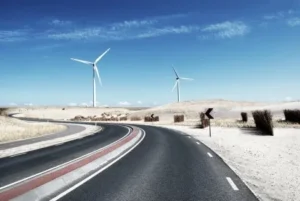On September 28, 2016, the Pennsylvania Supreme Court (Court) ruled[1] on a Commonwealth Court remand decision[2] of the Robinson Township 2013 Court decision,[3] where the Court held key provisions of Act 13[4] (the statute implementing major changes in Pennsylvania’s oil and gas laws and the ability of local government to regulate this industry) were unconstitutional (HMS Blog). In the 2016 Robinson Township decision, the Court: (1) upheld the Commonwealth Court’s holding that provisions related to Public Utility Commission (PUC) review of local ordinances are unseverable from unconstitutional provisions and thus unenforceable, and (2) held four additional provisions of Act 13, including the grant of eminent domain, unconstitutional.
The Supreme Court Decision
The Court agreed with the Commonwealth Court’s decision (HMS Blog) that provisions of Act 13 related to PUC and Commonwealth Court oversight of municipal zoning laws are unseverable from Sections 3303 and 3304, which prohibited local governments from enacting or enforcing environmental legislation regulating oil and gas operations and mandated that all ordinances regulating oil and gas be uniform, and that certain drilling activities be allowed in all zoning districts regardless of existing zoning laws. The Court’s 2013 plurality opinion found Sections 3303 and 3304 of Act 13 unconstitutional under the Environmental Rights Amendment of the Pennsylvania Constitution. Here, the Court held Act 13 Sections 3305 through 3309 are unseverable from Sections 3303 and 3304, and thus unenforceable, completely stripping the PUC of local zoning oversight under the Act.
The Court disagreed with the Commonwealth Court and ruled unconstitutional four other sections, including the Act’s grant of eminent domain power to entities transporting, selling, or storing natural gas that are not public utilities. Section 3241 granted corporations transporting, selling or storing natural gas the right to appropriate an interest in real property located in a storage reservoir or reservoir protective area if the area is or has been commercially productive of natural gas The Commonwealth Court had upheld the constitutionality of Section 3241 because its grant of eminent domain power to a corporation “empowered to transport, sell, or store natural gas in this Commonwealth” is the equivalent of the power traditionally conferred on public utilities that engage in similar activities. The Supreme Court disagreed, reasoning that Section 3241 conferred the power on a class of entities much broader than public utilities, and that corporations exercising eminent domain power under Section 3241would be acting with a primarily private purpose as opposed to a public purpose, in violation of both the Fifth Amendment of the U.S. Constitution and Article 1, Sections 1 and 10 of the Pennsylvania Constitution.
The Court held the other three sections of Act 13 unconstitutional as “special legislation” forbidden by Article III, Section 32 of the Pennsylvania Constitution:
- Section 3218.1, requiring DEP to notify, after investigation, any public drinking water facility that could be affected by a spill;
- Section 3222.1(b)(10), (the medical “gag rule”) limiting disclosure by the fracking industry to health professionals of identities and amounts used of chemicals claimed to be proprietary or trade secrets and only allowing disclosure where medical professional executes a confidentiality agreement and a statement that the information is needed for diagnosing or treating an individual; and
- Section 3222.1(b)(11), allowing health professionals limited opportunity to request such information in a medical emergency and verbally agree to confidentiality and acknowledge purpose of information.
The Court enjoined further application and enforcement of these provisions, but stayed the injunction with respect to 3218.1, DEP spill notifications, for 180 days in order to give the General Assembly time to enact remedial legislation.
Justice Todd authored the opinion, in which Justices Donohue, Dougherty and Wecht joined, Chief Justice Saylor concurred and dissented, and Justice Baer concurred and dissented.
Public and Industry Reaction
The decision is clearly a win for both environmentalists and municipalities, which describe the decision as a recognition of citizen’s rights over the gas industry’s political power.[5] On the other hand, the industry claims the decision will not actually provide any environmental or safety benefits all the while increasing difficulty of investing and creating jobs.[6]
With many of Act 13’s provisions now unenforceable, it remains to be seen whether the General Assembly will be able to strike a balance between oversight and regulation of oil and gas drilling with the interests of citizens and the industry in future legislation. However, the 2013 plurality opinion in Robinson Township has given the Environmental Rights Act teeth and the Court’s 2016 decision has reinforced that the Court will closely scrutinize legislation that encourages natural resource development at the expense of private property rights and environmental concerns.
[1] Robinson Township v. Commonwealth of Pennsylvania, 104 MAP 2014, ___ A.3d ___ (Pa. Sept. 28, 2016).
[2] Robinson Township v. Commonwealth of Pennsylvania, 96 A.3d 1104 (Pa. Cmwlth. 2014).
[3] Robinson Township v. Commonwealth of Pennsylvania, 83 A.3d 901 (Pa. 2013).
[4] Act 13 of Feb. 14, 2012, P.L. 87 (Act 13).
[5] Susan Phillips, PA Supreme Court rules with environmentalists over remaining issues in Act 13, StateImpact (available at https://stateimpact.npr.org/pennsylvania/2016/09/28/pa-supreme-court-rules-with-environmentalists-over-remaining-issues-in-act-13/); see also Don Hopey, High court strikes down Pa. law on shale gas, Pittsburgh Post-Gazette, PowerSource (Sept. 28, 2016) (available at http://powersource.post-gazette.com/business/legal/2016/09/28/US-appeals-court-hears-arguments-in-Clean-Power-Plan-case-2/stories/201609280043).
[6] Id.


